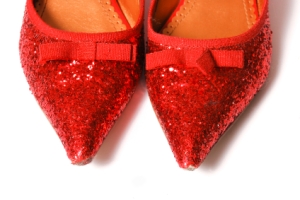
I want to set aside that question, though, to consider one that is, on the surface, much more simple: if I could, would I choose to be cured from this day forward? I have always felt in my idle moments that I’d swarm all over that opportunity. First, let me name the negatives of being bipolar.
1. It involves tremendous suffering. Obvious, but worth mentioning.
2. It’s a tremendous hassle to keep all of my prescriptions filled, and if I let a single one lapse, not only do I promptly go crazy, but everyone around me gets pissed off that I could be so irresponsible.
3. I absolutely have to have health insurance through work or a spouse, because (again, obviously) I’m uninsurable on my own. I’ve always savored the irony here. In the United States, the people least likely to be able to hold a job and maintain a stable relationship have to have one or the other in order to survive. And don’t talk to me about the wonders of Medicaid. It’s hard to get, crappy when you have it, and all too easy to lose — all you have to do is get a job that pays $10 an hour or more.
4. Did I mention how hard it is to keep a relationship or a job? It tears my heart open to read comments on Icarus and other sites from bipolar people who don’t have either. Oh, and because of wild swings in energy levels (forget mood for the moment) it’s tough to keep up with friends, to participate consistently in church and community events, or even to volunteer for a political campaign. Again, I might as well be seeing something I wrote when I look at other folks’ bipolar blogs, and read posts in which they describe committing to numerous activities while manic or well, then dropping all of them and cloistering themselves when the inevitable depression strikes.
5. It’s tough to exercise. In fact, as much as I promote wellness activities on this site, I recognize that it often feels impossible to do the very activities that preserve mental and physical health.
Yeah. I’ll stop there. Trust me when I say that there are plenty of drawbacks to being bipolar.
And yet….
As I noted yesterday, if I weren’t bipolar, I wouldn’t be me. I suppose, then, that my willingness to be manic depressive waxes and wanes with my self-love and its complimentary self-hatred. This morning, as I write and drink my coffee, I wonder if I wouldn’t feel terribly diminished without the — what? — savage sparkle of the disease.
I’ve long thought that there are two types of bipolar people: those who want to be normal, and those who live for hypomania. The former group is probably more mature and well-adjusted, the latter more unstable and driven. As much as I’d like to say that I long for normalcy, I really do fall into the second group.
I leave you with quotes from two famous bipolar individuals, Vincent Van Gogh and Kay Redfield Jamison, the author of some of the most fantastic books on manic depression and suicide: An Unquiet Mind and Night Falls Fast, respectively. (I cannot recommend the second to anyone with the slightest depressive tendency — it will toss you into the throes of an episode. Read it only if you’re quite stable and want to understand a suicidal loved one.)
Darn it, I thought I had the Jamison quote right at the tips of my fingers, but now I can’t fish it up. I do remember the last line: “I am a hard act to follow.” That is to say, once you’ve felt the glories of hypomania — the fey, fast brilliance, the sense of finally being one’s true self — it’s very, very hard to settle into normality. Normality feels like stupidity when you can remember the fluid beauty of associations, the sheer ease of thought, that accompanies hypomania. For me, words take on a lovely glow — it’s as if language is a glittering web, and each word has become a node of light connected by a fragile web web to the entirety of language, from English to French and back by way of German, the language of philosophy. Jamison’s summary is quite the understatement, really.
Now, from Vincent:
At the height of artistic life there is, and remains, and returns time and again, a hankering after real life — ideal and unattainable.
I believe I’ve quoted this wistful statement before in this space, but, as an old boyfriend of mine used to say when repeating a corny joke for the thousandth time, it bears repeating. For me, Van Gogh’s statement sums up the hopeless longing that many manic depressives feel: a craving for simple stability, and for the job, mortgage, spouse, kids, friends, life that others seem to acquire with such ease, and to hold in a sort of contempt.
Yes, normalcy. I want it. I can’t have it. I try to value what I do have, and I often succeed. But I would love to click my bright red heels together and whirl my way back to a black-and-white Kansas of the soul. Yes. I would.
Love to all.